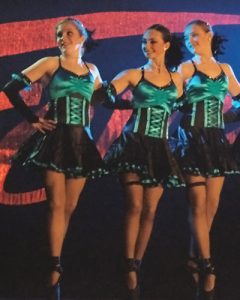To be a successful dancer you have to learn many dance routines—sometimes without much time to practice!
 As a dancer, you will be required to perform a variety of dance steps, remember the steps in the correct order and be able to learn dance routines quickly. Along with the physical side of dancing, you also need brain power and memory skills. Whether you’re a new dancer or have changed teams or studios, these tips will help you get up to speed.
As a dancer, you will be required to perform a variety of dance steps, remember the steps in the correct order and be able to learn dance routines quickly. Along with the physical side of dancing, you also need brain power and memory skills. Whether you’re a new dancer or have changed teams or studios, these tips will help you get up to speed.
1. Know Basic Dance Steps
Every dance routine is simply a series of basic steps and combinations, choreographed in unique ways. It’s important not only to learn the steps but also the name of the steps. Once you know the basic steps and what they are called, you’ll be able to respond quickly to instructions as the dance is taught.
2. Keep Your Eyes on the Instructor
Normally choreography is taught in a short combination of steps. Watch your dance instructor closely as the steps are shown. Don’t give in to the temptation of trying the steps yourself as your instructor is demonstrating. Wait until your instructor has completely finished. If you’re trying to follow right along with the instructor during the demonstration, you risk missing a key part of a step or combination. So be patient. First watch, then try.
3. Listen to the Music
Music selection is a vital part of dance and the chosen piece is often selected not only for its mood, but because of its beats and tempo changes. Try to feel the music and connect certain steps with strong beats or lyrics of the song. Many times step combinations are repeated during a certain phrasing or section of the song, such as the chorus.
4. Practice Makes Perfect
Whenever you learn anything new, you will need to practice over and over again. As you practice, over time, your ability to learn routines quickly will improve. Your mind and body will start to form associations, making it easier to learn. Of course practice will improve all the important elements of your dancing so you’ll be able to learn even more complicated routines. And you’ll enjoy practices and performances more when you are able to keep up. Remember the familiar saying “Don’t practice until you get it right, practice until you can’t get it wrong”!